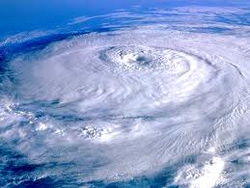
Description:
Meteorology is the interdisciplinary scientific study of the atmosphere. Studies in the field stretch back millennia, thoug significant progress in meteorology did not occur until the 18th centuary. The 19th centuary saw breakthroughs occur after observing networks developed across several countries. After the development of the computer in the latter helf of the 20th centuary, breakthroughs in weather forecasting were achieved.
Meteorological phenomena are observable weather events which illuminate, and are explained by the science of meteorology. Those events are bound by the variables that exist in Earth's atmosphere; temperature, air pressure, water vapour, and the gradients and interactions of each variable, and how they change in time. Different spacial scales are studied to determine how systems on local, regional, and global levels impact weather and cimatology.
Career Paths:
Meterology...
-
...helps to predict the climate and its relationship between other environment processes and the impact on our lives and the economy.
-
...leads to many different career options including daily weather forcasting, atmospheric research, teaching, broadcasting and supporting clients through private sectors and meteorological companies.
-
...teaches skills and knowledge related to geography and physics meaning that it leaves many career options open in these areas
Education:
Meteorology requires knowledge in higher mathematics, advanced physics and chemistry, as well as a good computer proficiency. The basic requirement for becoming a meteorologists is a BsC in meteorology or atmospheric sciences. Another option is to first get a BsC in mathematics, physical sciences or engineering and then follow an MsC course in Meteorology. Teaching, research or management positions usually require an MsC degree or a PhD.
The responsibility of collecting and reporting observation weather data is normally undertaken by meteorological technicians, who do not need to possess an academic degree. Their qualification is normally obtained through completion of technical level courses of varying duration – from a few months to one to two years depending on the work.
Average salary:
Just like other careers and degree programs, the average salery of a meteorologists depends on the career, the employer and their position inthe organisation. However, the average starting salary of a newly qualified meteorologist is between £21,000 and £27,000. After this, for experienced meteorologists it ranges from £25,000 to £35,000, and then for managers it increases to £38,000 to £60,000.



 meterology.png |
|---|

